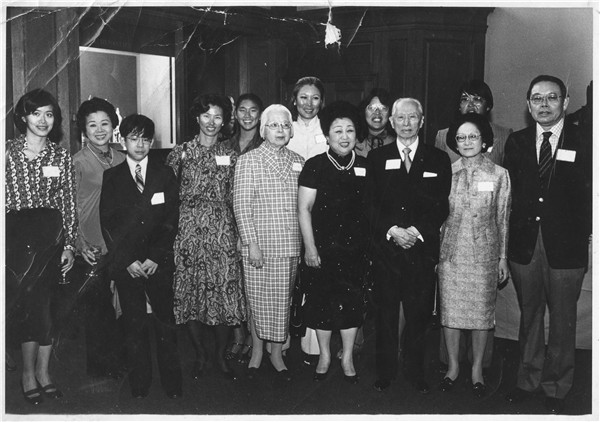 |
|
V.K. Wellington Koo (fourth right) with family members in 1976. [Photo provided to China Daily] |
Born in 1888 in Shanghai, Koo, whose Chinese name is Romanized as Koo Vi Kyuin, or Gu Weijun in pinyin, received traditional Chinese education before he went to a missionary school, St. John's College.
At the age of 16, Koo went to study in the United States.
He spent seven years in Columbia University in New York, studying international laws and diplomacy, and earned his doctoral degree with a thesis, The Status of Aliens in China.
In 1912, Koo became the secretary of Yuan Shikai, then-president of the Republic of China, and stepped into a diplomat career.
Koo was appointed as Chinese ambassador to the US in 1915 and became one of the five Chinese delegates to negotiate the Treaty of Versailles at the 1919 Peace Conference in Paris after World War I.
Koo made his name known on the international stage by his eloquence and persistence defending China's sovereignty over some territories in Shandong province which were occupied by Germany during World War I.
Failing to secure the return of the territories to China (they were granted to Japan), Koo and the delegation refused to sign the treaty.
It is regarded as the first time in China's modern history when the country said no to major Western powers.
Later, Koo held various important government posts in the 1920s and 1930s, including finance minister, foreign minister and interim prime minister.
In the early 1930s, Koo assisted the international inquiry delegation investigating the invasion of Northeast China by Japanese troops.